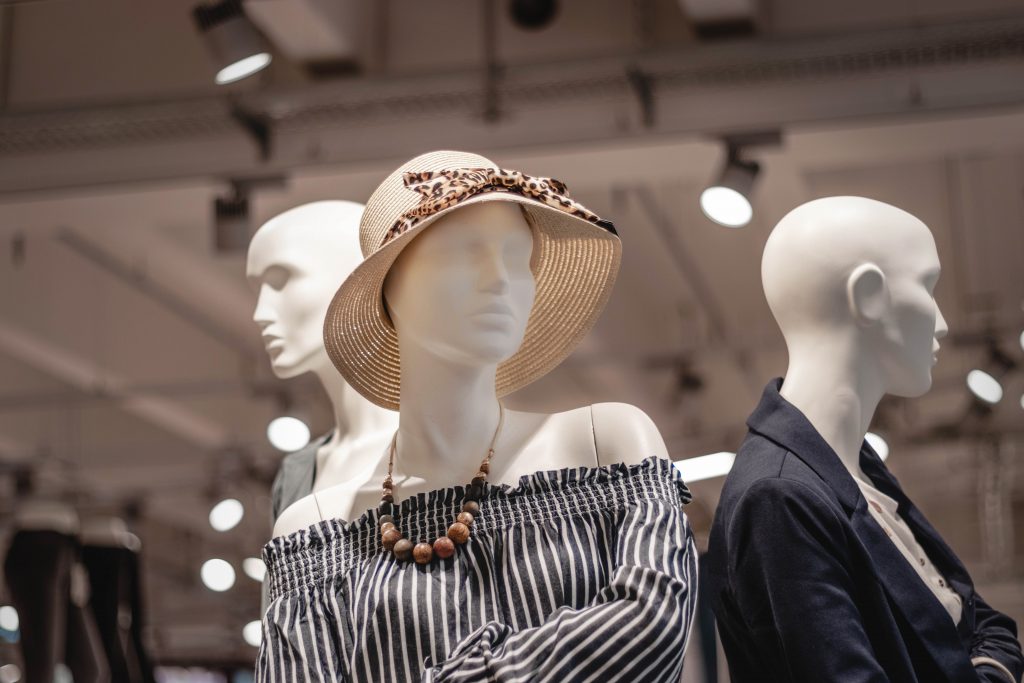by Marie Bruce

With Black Friday, Cyber Monday, Christmas shopping and now the January sales in full swing, it can seem as if you are missing out unless you're out there shopping until you drop. But how does all this consumerism effect your mental wellbeing? Well, that depends on how much of a shopper you are, how susceptible you are to marketing, and how much disposable income you have to play with.
Last summer we looked at the detrimental effects of debt and how it can lead to a feeling of being trapped and isolated. This month I want to explore the psychology behind the purchases we make. Like it or not, big brands spend thousands of pounds in marketing ploys designed to make you spend your money with them, which basically means that we are being manipulated by them and infected by the bug of consumerism on a daily basis. This is never more apparent than throughout the winter months, when we are urged to spend, spend, spend.
Shops are made to look warm and cosy in the dark winter afternoons. Some incorporate a coffee shop to make you stay there longer; to fool you into feeling more at home, more relaxed and therefore more likely to spend money. Cash registers are surrounded by small items easily added to a basket that is already overflowing, and high interest store cards offer you the chance to shop with money you don’t even have. It is a very sophisticated game, and the big brands are the winners.
What’s more, it is constant and it can seem like you can’t get away from it. One seasonal celebration leaks seamlessly into the next. Halloween, Bonfire Night, Christmas, New Year, Valentine’s, Easter, barbeques, summer holidays, back to school… and so it starts all over again, in a never-ending pressure to purchase.
Brands know how to sell to us – they play on our emotions, alternately offering reassurance and then triggering anxiety. They do this by offering the latest ‘must-have’ goods, appealing to your self-esteem. Then they play on your fear of missing out by telling you how fast this product is selling, or that it is on offer for a limited time only.
The big brands go out of their way to make shopping with them as easy as possible. They advertise in such a way that you might not even know you are being targeted by a marketing campaign. What could be less commercial than a girl in her bedroom talking to the camera about her ‘favourite’ make-up or fashion products and putting that video on the internet? And yet, she is acting as a form of advertising and might not have even bought the products she is raving about. That is why YouTubers now have to declare when they are advertising products for a brand with the hashtag #AD. Because it’s not just the brand that makes money this way, the YouTubers do too. This is also one of the reasons that some YouTubers dislike the term influencer – because it makes what they do transparent. They influence people to buy products through the video content they create, and they are well paid for doing so.
Brands make shopping so easy you don’t even have to leave your home to do it. Websites are more sophisticated and next day delivery makes everything so accessible, there isn’t even time to change your mind about an impulse purchase. Fancy reading a new novel, but don’t want to clean the ice off the car and drive to the book shop? No problem, just download it on Kindle. Hungry, but can’t be bothered to cook? No problem, just order in on your mobile app. Can’t sleep and feeling low in confidence? No problem, just watch a bit of You Tube and click on an affiliated link for a new dress you don’t need.
Shopping is so easy, and marketing has become so insidious and sophisticated, that it can sometimes feel like we don’t have much of a choice in our shopping habits. To a certain extent you’d be right, because this type of constant exposure to marketing is a subtle form of brain-washing and indoctrination. That’s what consumerism is - the duping of the masses for the purpose of profit.
In the past, shopping was something people did out of necessity. Now it has become the daily pastime of the Western world. So how do you know if you’ve inadvertently turned into Rebecca Bloomwood from Sophie Kinsella’s famous Shopaholic series? Start by answering these questions as honestly as you can:
Do you buy unnecessary items at least once every week?
Do you make your purchases on credit or store cards and have a running balance?
Do you struggle to meet minimum payments on your debts but still shop for things you don’t need?
Do you lie about how much money you spend on ‘treats’ or how much debt you have accumulated?
Do you hide your purchases from your partner?
Do you own new items that you have never used or which still have the tag on?
Do you buy things online in the middle of the night?
Do you hoard your purchases or struggle to find a place for them?
Do you argue with your spouse about how much you shop/spend?
Do you feel a sense of shame or remorse after making a purchase?
Are you convinced to buy things by your favourite influencers?
Do you have little or no savings? Do you have more debt than savings?
Do you shop to feel better about yourself?
Do you struggle to know the difference between wants and needs?
Do you worry about your finances?
If you answered 'yes' to six or more of these questions, it is likely that shopping has become a negative habit for you and unless you start to reign yourself in now, it could become a full-blown shopping addiction. An addiction is a consistent and habitual practice that is causing undue stress in your life, leading to conflict and strain in your relationships. So, how do you fix it?
First of all, forgive yourself. As you have seen from this month’s column, the big brands have been in cahoots against you for quite some time and you have fallen prey to their marketing campaigns exactly as they have intended you to. You are not alone – plenty of people are in a similar situation. Awareness is the first step to change and hopefully you are now a little more informed of how the big brands work with subliminal psychology to make you buy more. Being aware of this practice makes you less susceptible to it, but breaking any habit is always hard. Notice where your weakness is. Is it clothes, cosmetics, technology, scented candles, books? Are you spending to keep up with someone, say a friend or maybe a YouTuber? Where do you spend the most money, and where are you most influenced to spend?
Next, count your blessings. I know this sounds cliché, but I mean it literally – go around your home and count your blessings. Do you have food in the cupboards; are the household bills paid; do you have enough light and heat? Now think of where your personal spending habits lie and count how many examples of that habit are currently in your home. For example, do you own new books you haven’t read yet? Could you go to your wardrobe and put together a nice outfit, spritz on a luxury perfume and still feel like your favourite You Tuber or film star without spending another penny? Can you light a scented candle right now; do you have a stash of them to choose from?
Most people who have been in the habit of shopping consistently tend to have a surplus of items that they have collected over time, so it is likely that you could enjoy the results of your previous shopping trips now, rather than going out and buying more. Begin to see your home as a store and learn how to ‘shop’ from your own shelves – for free!
Finally, allow yourself to enjoy all the wonderful things you have bought up to this point and put yourself on a strict no-buy rule for the future. Forgive yourself for past mistakes, be aware of how the psychology of consumerism works so that you can defend yourself against it, and move forward with a commitment to only buying what you absolutely need. Above all, be grateful for what you already own.
This may be a rather luxury problem to have but it's still a problem, so learn to ‘shop’ from your own shelves, avoid the January sales and leave the brainwashed, consumer-driven shopping addiction behind. Until next month,
Serene Blessings
Marie Bruce x
 Find out more:
Find out more:
Marie Bruce Dip. T.C. MBACP is a qualified psychotherapist, Cruse Bereavement Counsellor and best-selling self-help author. She specialises in grief and loss counselling, PTSD and military counselling, and life coaching.
In this monthly column, Marie offers simple tools used by therapists to help clients and readers improve their mental well-being.
Marie’s books are available on Amazon UK.
More from this author:
Creative Counselling: Ghosts of Christmas Past
Creative Counselling: "Who Does She Think She Is?!"
Creative Counselling: Let It Go

 Find out more:
Find out more: